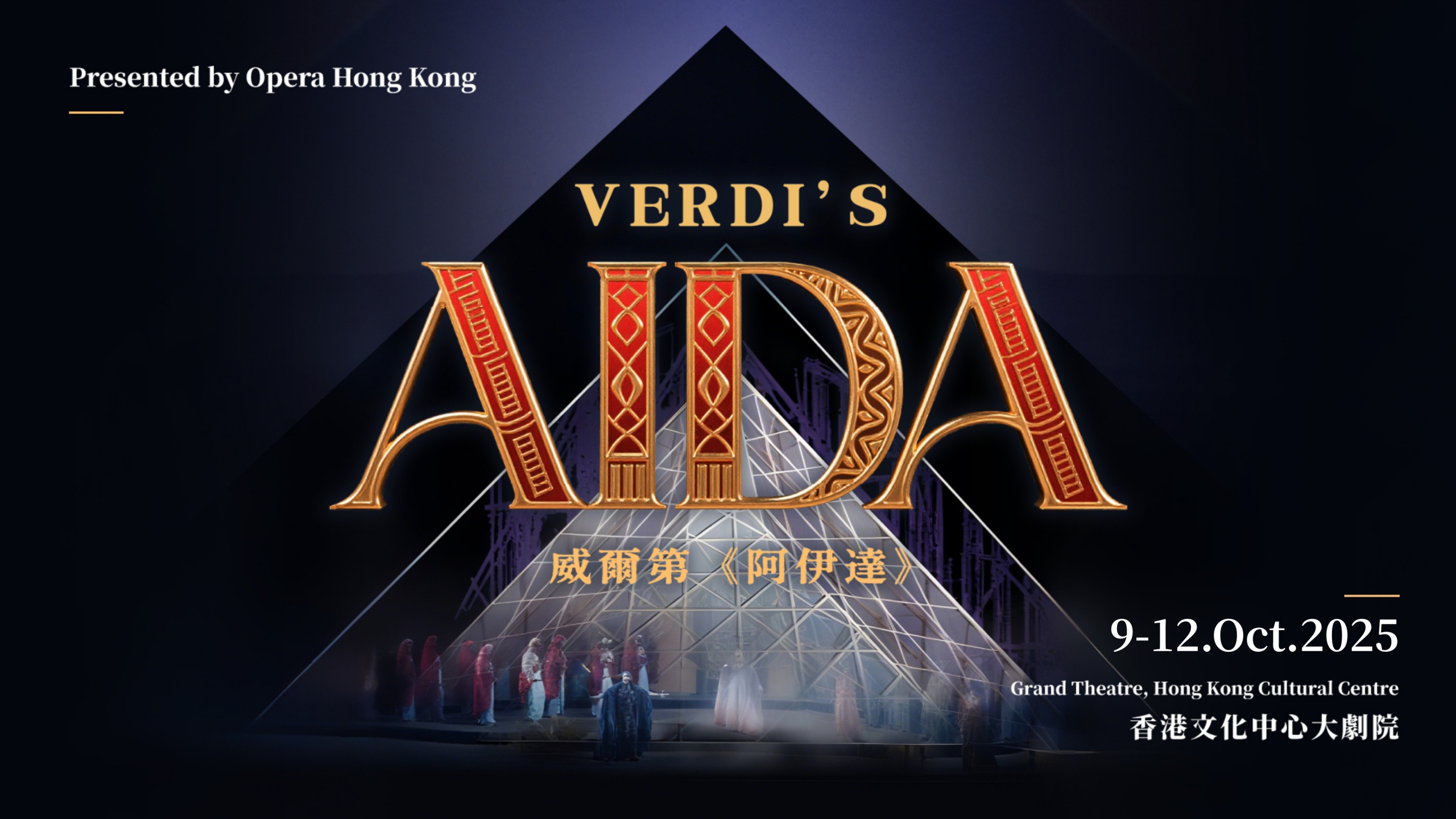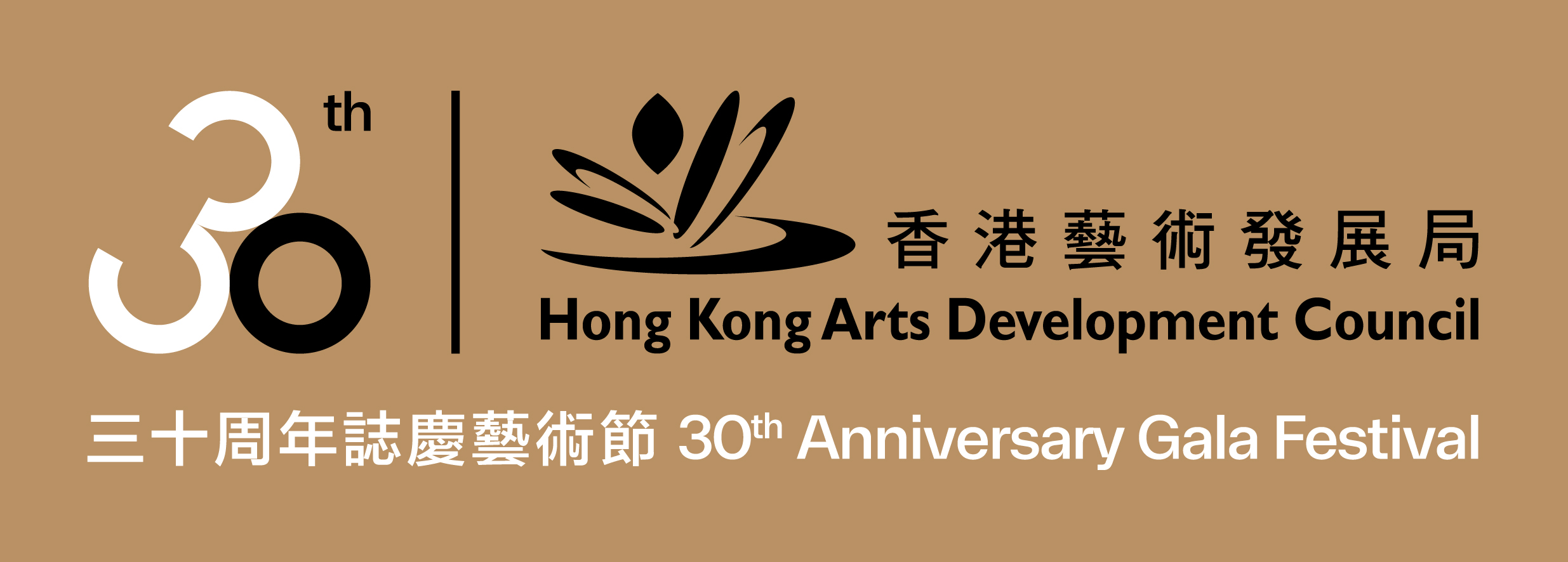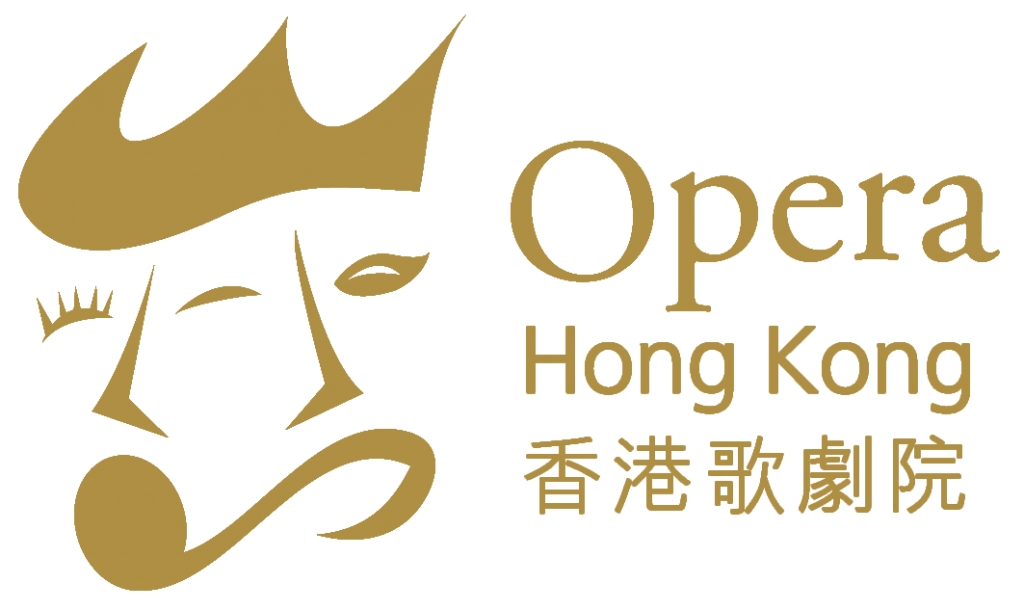Aïda
9-12 OCT 2025

| THU | FRI | SAT | SAT | SUN |
|---|---|---|---|---|
| 9 OCT | 10 OCT | 11 OCT | 11 OCT | 12 OCT |
| 19:30 | 19:30 | 14:30 | 19:30 | 14:30 |
Grand Theatre, Hong Kong Cultural Centre
$1,280 / $1,080 / $880 / $680 / $480 / $280
* Please refer to the promotional pamphlet for the discount scheme.
Book Now
Tickets available at URBTIX

Supported by

Supported by




Opera Hong Kong will proudly present Aïda by Giuseppe Verdi at the Hong Kong Cultural Centre Grand Theatre from 9 to 12 October 2025.
About Aïda – Peter Gordon
When the Khedive of Egypt wanted to open his new opera house, whom else but to Giuseppe Verdi would the commission for an Egyptian opera go? The Franco-Prussian War unfortunately intervened and Aïda’s sets and costumes got stuck in Paris; Rigoletto was performed instead. But Aïda finally received its world premiere in Cairo on Christmas Eve in 1871.
La Scala followed in February; within two years Aïda was a global hit. Europe was then in the throes of Egyptomania. Obelisks were being set up in European capitals, mummies populated European museums and the Suez Canal had just opened. With its famous triumphal march and often over-the-top pageantry (elephants have been known to appear on stage, including twelve at the Cairo premiere), Aïda was everything that nineteenth-century Europe thought Egypt should be.
It used to be that you could remember the three most-performed operas by repeating “ABC” for Aïda, La Bohème and Carmen. Giuseppe Verdi’s Aïda retains its audience appeal more than 150 years later, with audience figures that still rival Broadway blockbusters.
***
The Ethiopian princess Aïda — captured and enslaved — is in love with Radamès, a noble Egyptian warrior, and he with her. Radamès opens the opera with one of all of opera’s biggest opening numbers, “Celeste Aïda” (Heavenly Aïda). Radamès has however also fatally caught the eye of the Pharaoh’s daughter Amneris.
The music of the overture evokes the exoticism of ancient Egypt. As the chords fade, Abyssinia is invading Egypt — with an army led by Aïda’s father, the Ethiopian King Amonasro. Radamès has been chosen to lead the Egyptian armies against them; Aïda finds herself caught between her love of Radamès and her country. She catches herself saying “Ritorna vincitor!” — “return victorious!” —“… vincitor del padre mio…”, she then rebukes herself. She has called for Radamès to defeat her own father in battle. This, indeed, is the theme that plays out throughout the opera: where does patriotism sit in the pantheon of virtues?
Radamès is victorious — trumpets blare as processions and dancers cross the stage in the immediately recognizable Marcia trionfale. He is given Amneris’s hand in reward and Amneris tortures Aïda with her victory. Aïda, meanwhile, is trapped between her father — captured in the battle — and Radamès. Amonasro uses Radamès’s love to convince him to defect. “O patria, quanto mi costi!” she laments, “my country, how much you have cost me.”
Aïda, of course, isn’t about Egypt at all, but rather the conflict between duties to state, family and the heart. Although the music sets the opera in a far-away place, Verdi manages to include triumph, passion, pathos, anguish, ruthlessness, deception, bigotry and redemption in unforgettable arias, duets and choruses, all within a single work. As do all great works of art, it asks questions for which there are no answers.
As is often the case in opera, the women come out of it better than the men. Radamès seems somewhat clueless about the way the world really works and the ruthless Amonasro is all too ready to manipulate those around him. Amneris at least finally realises her malevolent role and repents, albeit too late. Aïda, who has struggled with the impossible position that fate has put her in, follows her heart to the tomb once freed from her duty.
An Opera in Four Acts
Sung in Italian, with Chinese and English Surtitles
Producer: Warren Mok
Conductor: Ramón Tebar
Director, Set and Costume Designer: Hugo de Ana
Choreographer and Assistant Director: Michele Cosentino
Lighting Designer: Valerio Alfieri
Video Designer: Michele Innocente
Opera Hong Kong Orchestra
Opera Hong Kong Chorus
CAST
Aïda
Maria Teresa Leva^ / Iwona Sobotka#
Radamès
Ivan Gyngazov^ / Marco Berti#
Amneris
Olesya Petrova^ / Nino Surguladze#
Amonasro, King of Ethiopia
Marco Caria^ / Burak Bilgili#
Ramfis, High Priest
Abramo Rosalen^ / Paul Gay#
King of Egypt(Il Re)
Paul Gay^ / Abramo Rosalen#
Messenger
Wesley Lam^ / Henry Ngan#
High Priestess
Carol Lin^ / Christy Li#
^ 9 Oct 7:30pm | 11 & 12 Oct 2:30pm
# 10 & 11 Oct 7:30pm
The presenter reserves the right to change the programme and substitute artists.
The Hong Kong Arts Development Council fully supports freedom of artistic expression. The views and opinions expressed in this project do not represent the stand of the Council.

